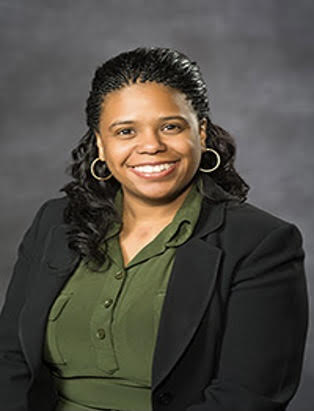
1. Tell us about yourself. What is your story?
I lived a relatively normal life. I was born and raised in Chicago on the south east side. My father and mother divorced when I was five, but I was raised by them both. Typically, I spent half the week with my mom and the other half with my dad. I had one sister, who is 2 years older than me, that always looked out for me like she was my mother. I graduated from elementary and high school with a public education, but was groomed to go to college by enrolling in honors classes and attending a school enrichment program called Upward Bound. My sister and I were 1st generation college students and were encouraged to attend college at historically black universities. I was active in sports, such as cheerleading and gymnastics and I was a social butterfly who went to Florida A&M University in Tallahassee, Florida. There I major in Business Administration. After my 1st year of college, I joined the US Army Reserve for the GI Bill and really appreciated the army’s structure. Eventually I came back to school and joined ROTC and set my sights on becoming a commissioned officer after graduation. After my sophomore year of college, the summer before my junior year, is when everything changed and my dreams were destroyed…
2. Tell us about your traumatic brain injury.
Right before coming back to school, I was driving a long distance to visit a friend and fell asleep at the wheel of my car and had a major accident on an interstate near Kansas City, Missouri. I was in a coma for over 2 weeks and in the hospital for nearly 5 months. I had a cerebral contusion with weakness on one side of my body and I had to learn how to walk, write, and speak again. Most importantly, I had a severe traumatic brain injury that severely impacted my cognition. I was told that I would probably never return to school and would need constant supervision for the rest of my life if I survived. It changed my entire life. I could not successfully return to school. I had severe problems with processing information, memory, and abstract thinking. I was medically discharged from the US Army Reserve, and I had no idea what I was going to do besides live with my mother and stepfather so they could take care of me. I was very depressed for a while. I had problems coping and did not know what my future held. I could not return to my former school nor could I return to the military. After a while, I did figure out a few things that helped me cope: (1) Tapping into my spirituality, (2) Exercise, and (3) Setting goals to get better and move towards productivity. I returned home and stayed at home for another 7 years after my injury. While focusing on the 3 areas I mentioned, I returned to school near my home and changed my major to a health professional major. I changed my major so I could connect with others who had similar experiences, and inspire them to be resilient and never give up.
3. In what ways are you still impacted by your brain injury, today? How do you work through the small ways it still impacts you?
I still have problems with memory and higher levels of cognitive function. For example, I have problems with information processing, planning and organizing, mental flexibility, and abstract thinking. I keep a calendar that helps with my memory and I try as much as I can to do certain things in repetition, so I can remember things more clearly (e.g., put my keys in the same place when I come home, etc). For information processing, I record and write a lot of notes, and I ask a lot of questions for clarity to ensure I am fully understanding the information. I also try to work with a team of people, instead of individually, so I can work with those who may have sharper executive functioning skills.

4. How has your brain injury impacted your mental health and wellness?
My Traumatic Brain Injury (TBI) has impacted my mental health in a positive way more than negative. I still get pretty angry sometimes when things do not go as planned, but for the most part, I am more kind, empathetic, patient, and understanding. I am fully confident that I can do just about anything if I put my mind to it.
5. How has your brain injury impacted your spirituality/ walk with God?
My TBI accelerated my walk with God tremendously. This event was a turning point in my life for me to personally get to know God and what God can do, instead of just being raised in the church and following Him because my parents told me so. My brain injury was the impetus behind my spiritual journey with God.
6. Did you have any symptoms of Post Traumatic Stress Disorder (PTSD) after your car accident? If so, how did you get through it? How did you overcome it?
I was a little fearful of driving and did not start driving on my own until about 5 – 7 years after the injury. Although, I did not remember the accident, and I had no recollection of what happened. However, this fear was not much of a problem since I was in situations where I did not need to drive.

7. What is your advice to women who have experienced a traumatic brain injury?
I encourage you to take any type of brain injury seriously. Get help as soon as you can. Be cautious and ask your loved ones to pay attention to the emotional manifestations of TBI. This type of injury can make you very vulnerable and unaware and that can be dangerous, especially for women. Seek support from your family and friends and find out as much as you can about brain injury. Knowledge is power. Every state has a Brain Injury Association. Seek that organization out and find support groups in your area to help you talk to others that have experienced similar problems as you.
Also, accept that things are going to be different and try to learn how to cope and adjust. Try to do different things than before and discover other things that might make you happy. Know your limitations but do not give up working towards your goals!

8. How did your brain injury impact your social or romantic life?
It affected me in the first few years by not being aware of the type of men I should trust. My relationships were short and I had no tolerance for mistakes; forgiveness was hard.
Socially, I did not feel comfortable in big crowds or even smaller crowds of my friends because of my inability to quickly process information. Plus, it was difficult to speak the way I used to speak. However, things got better when I joined my sorority, Delta Sigma Theta, Sorority, Incorporated and I started to open up and flourish. Although others thought I was different, they could still have fun with me. I am still trying to be patient with the romantic part of my life, and I try to be very cautious about who I hang around or let into my small circle of friends.
9. What did your physical recovery process look like? What did your emotional recovery and healing look like?
It took me about 6 months to recover physically from my injury. I recovered very quickly because I was in excellent shape before my injury. 30 years later, I continue to make exercise an important part of my weekly regime. However, it took much longer to deal with the emotional aspect of my injury. To this very day, I can get very emotional about the incident, but I have learned how to curb my emotions much better. My emotions typically get triggered when I am shocked by something and there are a few other things that can upset me. However, I learned to cope by walking away, taking deep breaths, and trying not to respond to something that bothers me right away. I refocus my attention on other things that are less upsetting. It is not easy but I use my self awareness to work on ways to improve.
Interviewer: Tori Hairston
Interviewee: Dr. Kelli Williams Gary
Brain injury association of Illinois: https://www.biail.com/